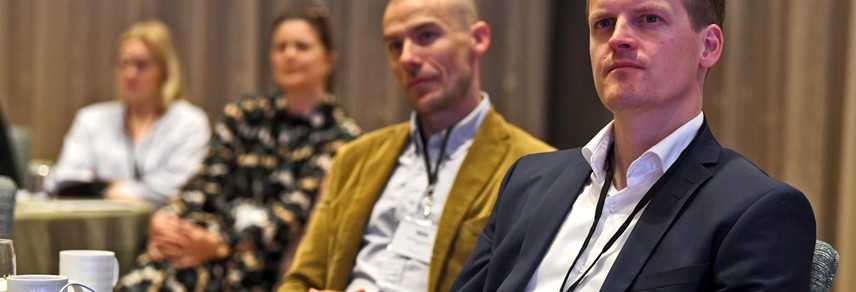
DATACOMMS CONFERENCE A HIT AS DATA EXPERTS REVEAL THE STATE OF PLAY AND TRADE SECRETS
Offering a unique insight into corporate data analysis and communications, the conference saw a number of fascinating talks and panel discussions from experts in the field. For anyone who works in the world of corporate data, this was not one you would want to miss.

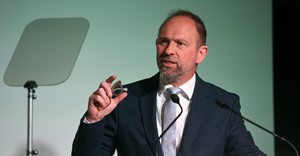
Taking place at the iconic One Moorgate Place in central London, founder of Communicate magazine and the DataComms Conference, Andrew Thomas, addressed the crowd of attendees, letting them know what was in store for them at the debuting event.
“Within companies and agencies,” he said, “there has been somewhat of a revolution over the past few years. The amount of data that organisations and comms departments must deal with is absolutely exploding.
“Now, when we take this massive amount of corporate data that organisations are producing every day, they’re having to analyse it, and they’re then having to communicate it to their various stakeholder groups,” Thomas continued. “It’s a massive job, and that’s why felt that a conference to find out how organisations were doing this was important.”
Commencing the DataComms Conference was John Burn-Murdoch, chief data reporter at the Financial Times and the creator of the FT’s Coronavirus tracker charts. He explained how data is brought to life in the FT’s newsroom and how an intelligent use of data is a must for corporate communications.
“The demand for data and statistics has ballooned over the past few years and our team at the FT has been at the heart of that,” he began.
Burn-Murdoch talked of the necessity for graphs to capture the attention and imagination of people who would otherwise not be interested in the information, rather than just those with an active interest. Exemplifying a not very user-friendly Covid-19 infections graph which appeared in a South African journal, he gave the audience tips on how to avoid data presentation pitfalls.
“Don’t assume people understand technical jargon like ‘hazard ratios,’” he said, “and it’s always a good idea to add a clear title. If people are confused by your chart, that’s on you, not on them!”

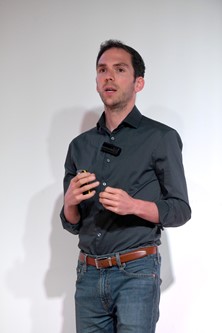

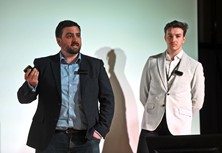
Up next saw the first of the DataComms Unwound segments in which real-life case studies were presented. Mike Robb, co-CEO at brand building, communications and analytics firm Boldspace, and Kenneth Pritchard, Head of Parliamentary Relations at the Post Office, discussed their project of trying to safeguard cash to protect vulnerable and lonely people who rely on the Post Office to offer this service every day.
From understanding the problem to assessing the results of the project, data analysis was integral. Robb said, “What the data told us was there’s a group of people for whom cash is very important. What we did from the very beginning was track [all the data] from a central base. It let us monitor in real time and ensure what we were doing was working.”
While the project resulted in over 110,000 unique website visits, Pritchard informed the audience that their work was not finished yet. “The next stage is that we want legislation to meet the criteria we’ve set,” he said.
A panel discussion called ‘Whose data is it anyway?’ then followed. Stuart Bruce, director and co-founder of Purposeful Relations, and Adam Vincenzini, director of global communications at Philip Morris International gave insightful presentations before the conversation turned towards data solutions in real-world scenarios.
“You want to create a culture where data leads to a solution. Sometimes you can have data to reinforce something though,” said Vincenzini. Bruce then added, “Sometimes the data you have in front of you isn’t the real story, but it can prompt you to look further.”
Both speakers had time to then offer the audience one final pearl of wisdom each. Vincenzini’s key tip to take away was the importance of remaining humble when confronting data. “There’s no way you can have all the answers up front,” he added.
Meanwhile, Bruce highlighted the importance of culturing people. “You need to spend time and focus on that,” he said. ‘The tech stuff comes later.”

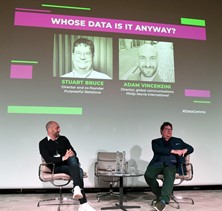

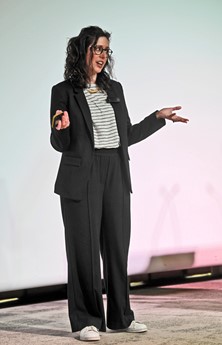
Next, the second segment of DataComms Unwound saw the director of research and analytics at Citypress, Marianne Morgan, talk through a case study of her company’s experience of being Aldi’s corporate comms agency. Their work for Aldi, amongst many things, included adding econometric, social and search data to the firm’s reporting, as well as making it a single report with actionable insights.
Morgan’s top tips for the listeners revolved around retaining the client’s interest and attention. For instance, show your findings in one report, avoid reports-by numbers, and always present your reports to the clients. Do all this, Morgan explained, and your firm might be able to revel in similar successes as Aldi has seen, such as saving 140 hours on reporting and achieving the strongest ROI of all channels.
The conference’s second panel discussion involved Commetric’s senior consultant, Matt Couchman, and Living Group’s chief client officer, Greg Hobden. They began with presentations, as Couchman reported on his firm’s application of the AMEC Integrated Evaluation Framework to single campaign measurement for a healthcare company. Hobden, meanwhile, talked about how to simplify and visualise complex data to an investor audience online. Hobden revealed Living Group “exploited the colour palette to set the tone from the go.”
When the topic of how organisations can understand the importance of data maturity, Couchman said, “It comes down to communication and to make sure you have those conversations with clients. You need to ask, ‘How do you normally do things and what goes out on internal documents?’”

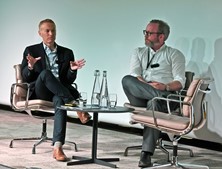

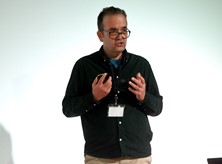
Sam Knowles, founder and managing director at Insight Agents, then gave a rip-roaring talk on data storytelling where he revealed his Universal Principles on how to ask smarter questions.
“Socrates, though he was irritating to authority figures,” Knowles said, “started with something I ask you all to embrace: ‘All I know is that I know nothing.’ When you start to approach a new brief, I would strongly encourage you to embrace your inner-Socrates.”
His Six Universal Principles were: listening, simplicity, openness, preparation, open-mindedness, and curiosity. Follow these and you will ask smarter questions, he advised.

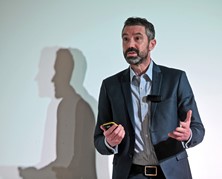
Last, but by no means least, Shahar Silbershatz, CEO of Caliber, presented a new and more actionable approach for monitoring corporate brand and reputation. He argued that actionability could best be found in continuous and representative data. By offering a custom real-time dashboard, automated reports and quick polls for tactical decisions, Caliber could offer better reputation monitoring.
“Silbershatz said, “The problem with annual surveys is that they’re not frequent or immediate enough to allow companies to optimise the impact. You have to wait for the annual report to show what’s happened and how it impacted your company.”
Today we live in an environment where every macro event creates expectations for stakeholders. Companies need to be prepared to handle these events and all this needs to happen very quickly,” he continued. “So, an annual survey is no longer good enough.”
This rounded off an insightful first DataComms Conference which gave plenty food for thought for the morning’s attendees.
For more from Communicate magazine, follow us on Twitter at @Communicatemag and on Instagram at communicate_magazine.



